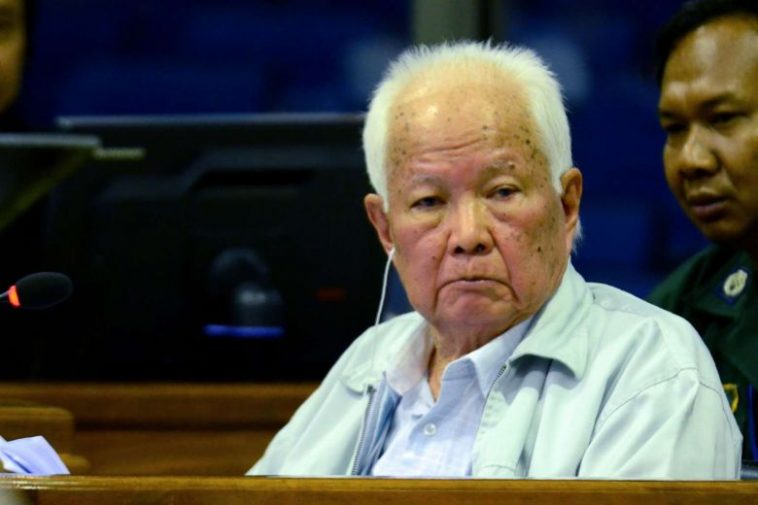When we think about the excesses of the Khmer Rouge and the , the obvious first name that comes to mind is Pol Pot, but a machine as brutal as the Khmer Rouge obviously had a number of working cogs.
The brothers of the Khmer Rouge, an informal ranking system remained in place largely unchanged from the 1960’s to the 1990’s and the slow demise of the Khmer Rouge.
Of the 8 members of the , or party core, some names such as , and Son Sen have become almost as infamous as Pol Pot himself, but one of the most interesting and in some respects most dangerous members of the inner-circle was Khieu Samphan, a man long seen as a moderate within .
Who was Khieu Samphan?
Khieu Samphan was born on 28th July 1931, in Svay Rieng Province to a middle class family of Khmer-Chinese descent. Quite an irony with regards to how people of Chinese ethnicity were to be later treated.
He was sent to study in both Montpellier and Paris in France from where he joined a growing group of left-wing intellectuals that would eventually go on to have such an affect in Cambodian history. He cofounded two organizations in Paris, namely the Khmer Students Association and the Khmer Students Union, both left-wing organizations.
Return to Cambodia
After returning to Cambodia Khieu held a law faculty position at the University of Phnom Penh as well as founding a French language left-wing magazine called L’Observateur. The magazine drew the ire of the government and was eventually banned. He was also hounded by the Cambodian police who not only beat, but humiliated him in public. He was very much under the watchful eye of the one-party state.
Despite this he was invited to join Sangkum, the national movement formed by Sihanouk along with some other notable left-wingers as a way to help appease the left in Cambodia.
He spent almost ten years serving under the Cambodian government of Sihanouk, before fleeing to the jungle prior to the Lon Nol coup against Sihanouk.
At the time it was rumored that he had been murdered by the regime of Sihanouk. Unbeknown to either Sihanouk, or Lon Nol, but Samphan had remained a secret member of the standing committee of the .
The polite face of the Khmer Rouge
After the overthrow of Sihanouk a rebel government was created by him and the Khmer Rouge, known as the GRUNK. Khieu Samphan, who at the time was seen as a moderate socialist was named deputy Prime-Minister of the GRUNK government.
Samphan in Democratic Kampuchea
The rule of Democratic Kampuchea was famously littered with party purges, many of which occurred against either those with ties to Vietnam, or the former regime of Sihanouk. In this respects he was exactly the type of person that usually would have been purged by Pol Pot. Due to his close friendships with the leader of the Khmer Rouge, not only was not purged, but served as head of state of the country and was known as Brother Number 4. Making him officially at least the 4th most important person in the Khmer Rouge.
You can read more about the brother system in Cambodia .
After the fall of Democratic Kampuchea
After the fall of the Democratic Kampuchea regime Khieu Samphan fled with the rest of the Khmer Rouge and was to remain a central player in the KR until 1997.
In 1985 he officially took over the Khmer Rouge and the newly formed from Pol Pot, although it is widely accepted that Pol Pot remained in de-facto control of the organization. It is largely believed that because Khieu was in some ways seen as a moderate, without direct links to the Killing Fields it would make the Khmer Rouge more policeable to the general and international public.
Defection to the government and imprisonment
In 1997 Khieu Samphan followed Ieng Sary and defected to the government. He initially formed the . Originally it was his intention to go in opposition to the Cambodian Peoples Party, but this was not to occur and the party disappeared into obscurity in 1998.
He was to spend the next 10 years in complete freedom after receiving a royal pardon following his initial defection.
H was eventually arrested in 2007 and after almost 10 years finally received a life sentence for his crimes during the regime and aftermath of the Khmer Rouge. His is the most senior member of the Khmer Rouge still alive. He has denied his involvement in the excesses of the regime and shown little to no remorse.
